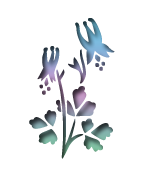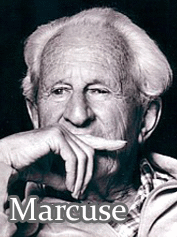Pedagogical Lens
Critical Pedagogy
 Although critical pedagogy has evolved over several decades, it continues to be shockingly congruent in the 21st century. Now, more than ever, it is extremely important that students learn how to discern and analyze the social, political, cultural, and hegemonic forces that shape our globalized world. Nursing students are preparing for a profession where critical awareness is extremely important, and will serve them well as they engage in client advocacy and socially conscious practice. Indeed, all of the rhetoric proposed by national health governance bodies supports this keen awareness: a cognitive and affective understanding of social determinants of health, health promotion, cultural safety, evidence-based practice, and so on, all depend on this kind of awareness.
Although critical pedagogy has evolved over several decades, it continues to be shockingly congruent in the 21st century. Now, more than ever, it is extremely important that students learn how to discern and analyze the social, political, cultural, and hegemonic forces that shape our globalized world. Nursing students are preparing for a profession where critical awareness is extremely important, and will serve them well as they engage in client advocacy and socially conscious practice. Indeed, all of the rhetoric proposed by national health governance bodies supports this keen awareness: a cognitive and affective understanding of social determinants of health, health promotion, cultural safety, evidence-based practice, and so on, all depend on this kind of awareness.
Critical pedagogy has been defined in different ways. According to Henry Giroux's definition, "[Critical] pedagogy . . . signals how questions of audience, voice, power, and evaluation actively work to construct particular relations between teachers and students, institutions and society, and classrooms and communities. . . . Pedagogy in the critical sense illuminates the relationship among knowledge, authority, and power" (1994, p.30). Keliner (2000) defined it as, "Critical pedagogy considers how education can provide individuals with the tools to better themselves and strengthen democracy, to create a more egalitarian and just society, and thus to deploy education in a process of progressive social change." Freire identifed the notion of "conscientization," or the coming to critical consciousness as a central tenet of the critical pedagogy process.
A Brief History...
 It is generally agreed that critical pedagogy first emerged in the teachings of the Frankfurt school (which included philosophical dignitaries such as Herbert Marcuse, Erich Fromm and Theodor Adorno, and later Jurgen Habermas), who influenced the thinking and conceptualizing of Brazilian educator and theorist, Paulo Friere. The infamous Friere first popularized the term, "critical pedagogy" in his book Pedagogy of the Oppressed and continued his expansion on the theory in several books that followed over the years. One of Friere's keen prodigies,
It is generally agreed that critical pedagogy first emerged in the teachings of the Frankfurt school (which included philosophical dignitaries such as Herbert Marcuse, Erich Fromm and Theodor Adorno, and later Jurgen Habermas), who influenced the thinking and conceptualizing of Brazilian educator and theorist, Paulo Friere. The infamous Friere first popularized the term, "critical pedagogy" in his book Pedagogy of the Oppressed and continued his expansion on the theory in several books that followed over the years. One of Friere's keen prodigies,
"The heart of Freire's pedagogy revolved around an anti-authoritarian, dialogical and interactive approach which aimed to examine issues of relational power for students and workers (McLaren, 2000). In addition, the fundamental goal was to place social and political critiques of everyday life at the centre of the curriculum. There was no place here for mere critical thinking. Rather, Freire's praxis - critical reflection and action - required implementation of a range of educational practices and processes with the goal of creating not only a better learning environment, but also a better world. Freire himself maintained that this was not merely an educational technique but a way of living in our educative practice (Freire, 1998). From this perspective, Freire's (1973) '"reading the word and reading the world' approach to literacy, and indeed, education arose. Freire refuted the idea that education could be simply about politics, but rather that education is politics, though the two need not be mutually exclusive. Importantly, however, he argued that a social and political analysis of life should be at the centre of curriculum, no matter what the official content. Education should not be about the transference of knowledge but rather the collaborative and collective production of knowledge grounded in the reality of students' lives. The former, banking education (Freire, 1984), is domesticating, the latter, liberating or humanizing. Human life holds meaning through communication and dialogical relations should be at the heart of any educational experiences. And through authentic dialogue between students and teachers and an emphasis on problem-posing, the students would develop a critical consciousness" (Keesing-Styles, 2003, pgh. 10).
Henry Giroux, has applied Friere's work and expanded on it to create further meaning for educators from around the world. Giroux gained academic acclaim for his amazing work while working as a professor at various USA universities, including Penn State, but is currently working in Ontario, Canada due to his own critical awareness of the politics and restrictions that are looming over education in his homeland. These same challenges are also being experienced at various levels in Canada and other international countries.
References
Giroux, H. A. (1994). Disturbing pleasures: Learning Popular Culture. New York: Routledge.
Keesing-Styles, L. (2003). The relationship between crtical pedagogy and assessment in teacher education. Radical Pedagogy,5 (1). http://radicalpedagogy.icaap.org/content/issue5_1/03_keesing-styles.html
Kellner, D. Multiple Literacies and Critical Pedagogies. In Revolutionary Pedagogies - Cultural Politics, Instituting Education, and the Discourse of Theory. Peter Pericles Trifonas, Editor. New York: Routledge.